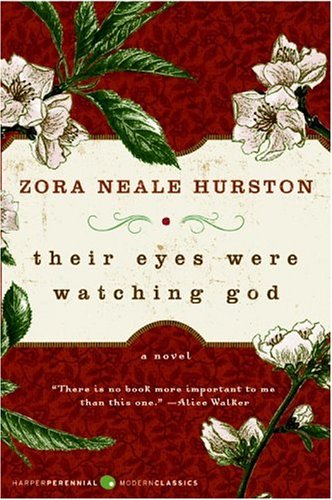All Nonfiction
- Bullying
- Books
- Academic
- Author Interviews
- Celebrity interviews
- College Articles
- College Essays
- Educator of the Year
- Heroes
- Interviews
- Memoir
- Personal Experience
- Sports
- Travel & Culture
All Opinions
- Bullying
- Current Events / Politics
- Discrimination
- Drugs / Alcohol / Smoking
- Entertainment / Celebrities
- Environment
- Love / Relationships
- Movies / Music / TV
- Pop Culture / Trends
- School / College
- Social Issues / Civics
- Spirituality / Religion
- Sports / Hobbies
All Hot Topics
- Bullying
- Community Service
- Environment
- Health
- Letters to the Editor
- Pride & Prejudice
- What Matters
- Back
Summer Guide
- Program Links
- Program Reviews
- Back
College Guide
- College Links
- College Reviews
- College Essays
- College Articles
- Back
Their Eyes Were Watching God
Their Eyes Were Watching God, by Zora Neale Hurston is a classic novel evoking a woman's journey in discovering self-reliance. Depicting early 1900 southern dialect in Eatonville and the Florida Everglades, Hurston unravels Janie Crawford's crusade to uncover peaceful independence and self-fulfillment. Through the protagonist, the author portrays every woman's life-long journey as a hunter of individual freedom. Figurative language and exemplified events contribute to the revelation that a woman seeks her own voice through God and nature.
Janie initially gains the drive for independence through nature as a young child. While watching the enlightenment of a bee and a pear blossom, Janie unveils “the sun and the panting breath of the breeze when the inaudible voice of it all came to her” (11). The pear tree figuratively sets Janie's expedition in revealing a deep un-dying love. In this primary nature scene, Janie is set upon a mission to discover wholeness with herself in relation to others.
Furthermore, in rising action, the hurricane develops Janie's hunt for self-reliance. As she informs Pheoby, “The wind came back with triple fury…but their eyes were watching God” (160). Under pressure of the hurricane, Janie and the other characters directly face God and nature, and in this scene, Hurston evokes the exploration against God and nature all humans contain. The hurricane symbolizes Janie's life-long fight and survival for individuality. The characters take their stand in the world and gain self-realization through God and the hurricane because “their eyes straining against crude walls and their souls asking if He meant to measure their puny might against His” (160). Hurston proves friendship as the key factor in surviving the hurricane, and therefore the answer to surviving all struggles in life.
Metaphorically, “Janie saw her life like a great tree in leaf with the things suffered, things enjoyed, things done and undone. Dawn and doom was in the branches”(8). While Janie reviews her life with Pheoby as an adult, she distinguishes the connection she gained with nature as the unifying factor of her independence. As a result of her encounters with nature, Janie evaluates herself as a conquered woman.
From beginning to end, Hurston directly identifies nature as a key factor in Janie Crawford's life. In closing, Janie proclaims, “Love is lak da sea. It's a movin' thing, but still and all it takes its shape from de shore it meets, and it's different with every shore.”(191). Janie begins her life as an unidentified young girl searching for herself and gradually grows strong and independent due to her interactions with nature and others. In closing of the feminist novel, Hurston thoroughly and figuratively compares Janie's life to nature as “She pulled in her horizon like a great fish net” (193). Women of the world search for identity through men and relationships only to discover self-reliance through God and nature. Their Eyes Were Watching God remains a worldly novel today because it identifies all women in search for self-reliance and independence.
Similar Articles
JOIN THE DISCUSSION
This article has 0 comments.

